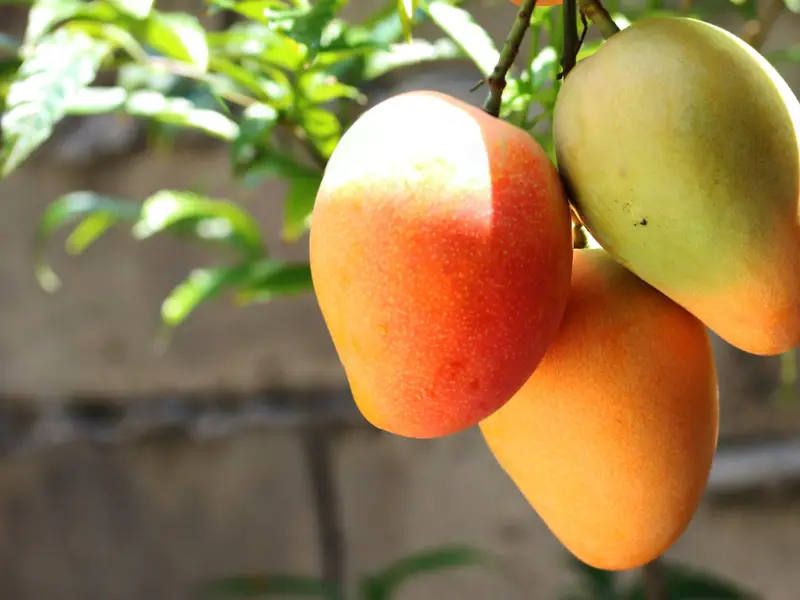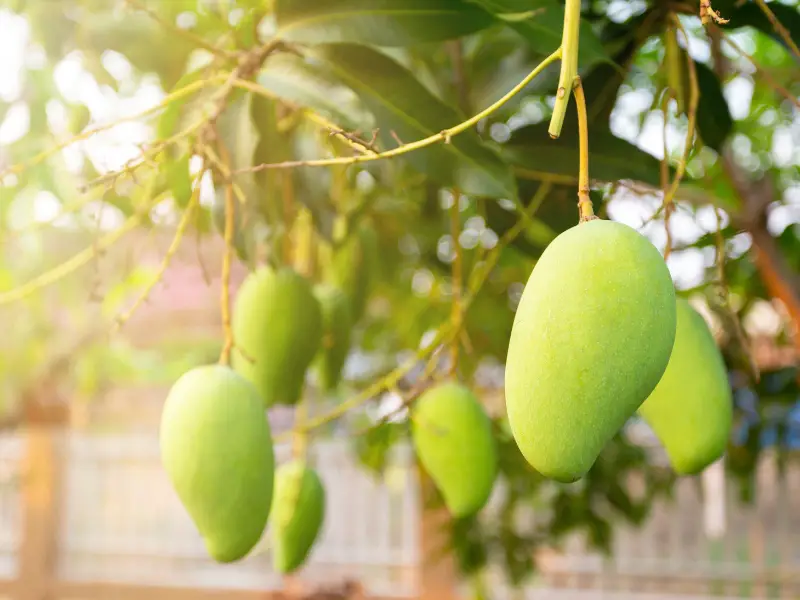Rabbits are known for their love of fresh vegetables and fruits. Mangoes are a popular fruit enjoyed by many people around the world. But can rabbits eat mango?
The answer is yes, rabbits can eat mango, but only in moderation. Mangoes are a great source of vitamins and minerals, including vitamin A and vitamin C. These vitamins are essential for a rabbit’s health and can help boost its immune system. However, mangoes are also high in sugar, which can cause health problems for rabbits if they eat too much. It is recommended that rabbits only eat mango as an occasional treat, rather than as a regular part of their diet.
When feeding mango to rabbits, it is important to remove the skin and pit. The skin can be difficult for rabbits to digest and the pit can be a choking hazard. It is also important to wash the mango thoroughly to remove any pesticides or chemicals that may be present. Overall, while mangoes can be a healthy treat for rabbits, they should be given in moderation and as part of a balanced diet.
Can Rabbits Eat Mango with Skin?
Rabbits are herbivores and can eat a variety of fruits and vegetables. Mango, a tropical fruit, is a sweet and juicy treat for many animals, including rabbits. However, before feeding mango to your rabbit, it’s essential to know whether it can eat the fruit with its skin or not.
The skin of a mango is tough and fibrous, making it challenging for rabbits to digest. Eating mango skin can cause gastrointestinal problems, such as bloating, gas, and diarrhea, in rabbits. Therefore, it’s best to remove the skin before feeding mango to your rabbit.
In addition to the skin, mango seeds also pose a risk to rabbits. Mango seeds are large and hard, making them difficult to chew and swallow. Eating mango seeds can cause intestinal blockages, which can be life-threatening for rabbits.
In conclusion, while mango is a healthy and nutritious fruit for rabbits, it’s crucial to remove the skin and seeds before feeding it to them. By doing so, you can prevent any potential health problems and ensure that your rabbit enjoys the sweet and juicy treat without any issues.
Benefits of Feeding Mango to Rabbits

Mango is a delicious fruit that is enjoyed by many people around the world. However, many people may not know that mango can also be a healthy and nutritious treat for rabbits. Here are some of the benefits of feeding mango to rabbits:
- Vitamin C: Mango is a good source of vitamin C, which is an essential nutrient for rabbits. Vitamin C helps to boost the immune system and can help to prevent illnesses and diseases in rabbits.
- Fiber: Mango is high in fiber, which is important for maintaining good digestive health in rabbits. A diet that is high in fiber can help to prevent digestive problems such as diarrhea and constipation.
- Antioxidants: Mango contains antioxidants, which can help to protect rabbits from harmful free radicals. Free radicals can damage cells and contribute to the development of diseases such as cancer.
- Hydration: Mango is a juicy fruit that can help to keep rabbits hydrated. Adequate hydration is important for maintaining good health in rabbits.
It is important to note that while mango can be a healthy treat for rabbits, it should be fed in moderation. Too much fruit can cause digestive problems and may lead to obesity in rabbits. It is recommended that rabbits be fed a diet that is primarily made up of hay and fresh vegetables, with fruit being given as an occasional treat.
Risks of Feeding Too Much Mango to Rabbits
While mango can be a healthy treat for rabbits, feeding too much can lead to health problems. Here are some risks associated with feeding too much mango to rabbits:
1. High Sugar Content
Mangoes are high in sugar, and too much sugar can cause digestive issues in rabbits. Overfeeding mango can result in diarrhea, bloating, and gas.
2. Obesity
Feeding too much mango to rabbits can lead to obesity. Mangoes are high in calories and can quickly add up, leading to weight gain. Obesity in rabbits can lead to many health problems, including heart disease, arthritis, and diabetes.
3. Dental Problems
Mangoes are also high in natural sugars, which can stick to a rabbit’s teeth and cause dental problems. Overfeeding mango can lead to tooth decay, gum disease, and other dental issues.
4. Imbalance in Diet
Feeding too much mango to rabbits can also lead to an imbalance in their diet. Mangoes are high in sugar and low in fiber, which can upset a rabbit’s digestive system. A balanced diet for rabbits should consist of hay, fresh vegetables, and a limited amount of fruit.
In conclusion, while mango can be a healthy treat for rabbits, it should be given in moderation. Overfeeding mango can lead to health problems such as digestive issues, obesity, dental problems, and an imbalance in the rabbit’s diet.
How Many Mangoes Can I Give My Rabbit?
Rabbits can eat mangoes, but they should only be given in moderation. Mangoes are high in sugar and should be considered a treat rather than a regular part of their diet.
The recommended serving size of mango for a rabbit is about one tablespoon per day. This is equivalent to about one or two small pieces of mango. It is important to remember that too much fruit can cause digestive issues for rabbits, so it is best to limit their intake.
It is also important to note that mangoes should be given in addition to a balanced diet of hay, fresh vegetables, and a limited amount of pellets. Mangoes should not replace any of these essential components of a rabbit’s diet.
In summary, rabbits can enjoy mangoes as a treat, but they should be given in moderation. The recommended serving size is about one tablespoon per day, and it should not replace any of its essential dietary components.
Can Baby Rabbits Eat Mango?
Mangoes are a sweet and delicious fruit that many people enjoy. However, when it comes to feeding them to baby rabbits, there are a few things to consider.
Firstly, it is important to note that rabbits are herbivores and their diet should consist mainly of hay, fresh vegetables, and water. While fruits can be given as a treat, they should not make up a significant portion of a rabbit’s diet.
When it comes to baby rabbits, it is recommended that they stick to a diet of hay and their mother’s milk until they are around 8 weeks old. After this time, they can be gradually introduced to solid foods, including vegetables and fruits.
While mango can be a healthy treat for adult rabbits, it is not recommended to feed it to baby rabbits. This is because their digestive systems are still developing and are not yet able to handle the high sugar content found in mangoes.
In addition, feeding baby rabbits too many treats, including fruits, can lead to digestive issues such as diarrhea. It is important to introduce new foods slowly and in small quantities to avoid any potential health problems.
Overall, while mango can be a healthy and tasty treat for adult rabbits, it is not recommended to feed it to baby rabbits. Their diet should consist mainly of hay and their mother’s milk until they are around 8 weeks old, at which point they can be gradually introduced to solid foods.
Related Articles:

